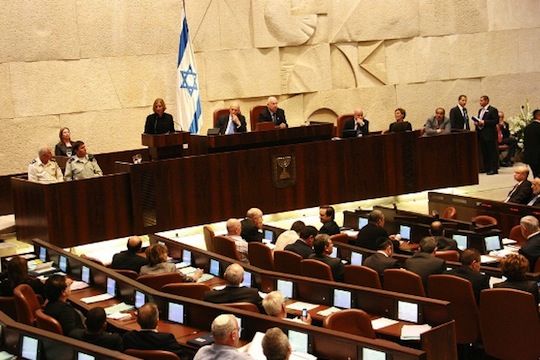It was the state’s policies within its 1948 borders that inspired the 1967 occupation, not the other way around.

During a Knesset debate in May 2011, Prime Minister Benjamin Netanyahu chastised opposition parties for criticizing his government’s lack of progress in achieving a two-state solution. Referring to Palestinian demonstrations held the day before in commemoration of the Nakba, Netanyahu pointed out that the protests “did not take place on June 5, the day the Six Day War erupted,” but on “May 15, the day the State of Israel was established.” He continued: “This is not a conflict about 1967. This is a conflict about 1948, about the State of Israel’s very existence.”
Although not in the way he conceived, Netanyahu was right. In the flurry of activity this week marking the fiftieth year of the occupation, many have forgotten that the basis of its regime existed well before 1967. The Emergency Regulations, a product of Britain’s colonial mandate, were first exercised on the 150,000 Palestinians who remained inside Israel’s borders after the 1948 war. The state honed its discriminatory policies of land grabs, checkpoints, and brutal violence against its minority citizens for two decades, before transferring them to the Palestinian territories.
The shadow of military rule has never left Palestinian life in Israel. Dozens of civil laws, most of which were written in neutral terminology or bestowed extensive powers to the state, continue to ensure Jewish privilege at the expense of Palestinian citizens’ rights. Over twenty of these laws were enacted by Netanyahu’s governments in the last eight years, with some of the most egregious ones being condoned by the Supreme Court itself. The result was a nuanced system that maintained the appearance of a democracy, but in fact cemented racial hierarchy among Israel’s citizens.
This system is what allows for the ongoing displacement of Naqab (Negev) Bedouins into impoverished townships under the guise of “modernization,” while confiscating their lands to build rural Jewish communities. It enshrines free speech as a legal right yet empowers authorities to stifle Palestinian expression in schools and theaters. It invites Jews from around the world to immigrate and naturalize in Israel, but bans Palestinian citizens from bringing their spouses into the country if the latter are from Gaza or the West Bank.

Liberal Zionists like to claim that these racist policies are the result of the occupation’s corrupting influence. But it was the state’s political experiments before 1967 that inspired the occupation, not the other way around. In East Jerusalem, Israel proved again that it could easily transform military conquest into normalized discriminatory rule, capable of crushing local resistance and withstanding international pressure. The Knesset even revived history last June when it approved “anti-terror” legislation that anchors many of the Emergency Regulations’ temporary provisions into permanent law, making Palestinian citizens susceptible to the same draconian policies that their grandparents were subjected to years ago.
The success of these experiments is why leaders like Education Minister Naftali Bennett are promoting the annexation of large parts of the occupied territories; some are even suggesting that several thousands of West Bank Palestinians be granted Israeli citizenship or residency. Israel learned early on that if it could not expel all the Palestinians from the land, it could contain them through more subtle methods of colonial management. So if the state has been able to maintain its racial caste for this long, why should it stop now?
The occupation is therefore not the source of Israel’s problem – it is merely a symptom of it. The “Jewish state” has always demanded that Palestinians accept, legally and morally, that their belonging to the land is second to that of Jews; that the price for peace is to embrace inferior rights, whether they are citizens or dominated subjects. It should not take another fifty years – or more accurately, another seventy years – to recognize the injustice of that demand.


